Please welcome my friend and guest contributor, Ed Tracey, who has a sequel to his post about how jazz helped win the cold war! ~MMN
Recently I posted an essay on the campaign to award a posthumous Presidential Medal of Freedom award to Willis Conover – the Voice of America broadcaster whose “Jazz Hour” (which ran from 1955 until his death in May of 1996) has been cited by many as being the most effective foreign policy tool we ever had. It introduced 100 million people around the world (and 30 million alone in Eastern Europe) to American jazz, which portrayed an image of America different from what state-controlled media during the Cold War did – but because the VOA (as part of the US government) is legally prohibited to be broadcast within the US (unless one had a short-wave radio) Conover is virtually unknown in his own country.
Here now is a follow-up to that essay, which is a testament to making the ‘extra effort’. In citing the many musicians who point to Willis Conover as having helped launch their careers: it occurred to me that many of the names would not be recognizable – and hence meaningful – to non-jazz fans reading it. And so, just on a hunch: I contacted the manager of a GRAMMY Award-winning musician – whose career I first took notice of in the early 1970’s – who had emigrated from Czechoslovakia (today, the Czech Republic) in 1968. And his manager confirmed that multi-keyboardist Jan Hammer – best-known to the general public for his musical scores on Miami Vice – credits Willis Conover for helping inspire his music career. I included that reference in my essay, and sent a thank-you note to his manager Elliott Sears – and I thought that was the end of it.
But he replied that it went further than that – in fact, Willis Conover had come to Jan Hammer’s family’s home in Prague, and Jan had some interesting stories to tell. The end result? I had a chance to have a telephone interview with Jan recently, which you can read after the jump. Note: this is being posted 15 years to the day after the death of Willis Conover on May 17, 1996.
Jan Hammer recently marked his 63rd birthday, and he began playing piano at the age of four. His father, Jan Hammer Sr., was a cardiologist, but he worked his way through university playing bass and vibraphone. And his mother, Vlasta Pruchova, was Czechoslovakia’s best-known jazz singer. They often invited jazz musicians to their home, including visiting American performers. Yet it was a radio voice that led to this interview – indeed, the tone of Jan’s voice over the phone became animated in discussing Willis Conover (as you will see).
You may have complaints about Western media, but just imagine what it was like living in a totalitarian state. And you may have complaints about Western governments – but the odds are you did not have to leave your homeland before age 21 due to an invasion. That is where we begin…
Q – Thanks for speaking with me about Willis Conover.
A – It’s amazing that most Americans do not know about him.Q – What was it like growing up in a country with such a controlled media?
A – Official information was totally one-sided, though not as bad as North Korea. In order to get good information, your friends would come over to your home with what they had actually seen or heard. Some may have listened to the BBC feed – it was scatter-shot.Q – How good was the Voice of America (VOA) signal?
A – It was a retransmission from Munich or Tangiers, Morocco. Often the signals were jammed – you heard a beep-beep-beep sound – but someone in the “Big Commie Hierarchy” must have liked jazz – because at 10 PM the jamming often stopped for the Jazz Hour.Q – Maybe they did not see music as a threat?
A – Who knows about these Politburo-types?Q – When did you first listen to Willis Conover?
A – My first memory was at age 10 in 1958. My father had a tape recorder, and we were listening to Miles Davis. I had been playing piano before but the plan was for me to become a doctor like my father. But music turned me around.Q – Tell me about your musical training.
A – My father said, “If you are to be a musician, you must have the best training”. I studied for 2 years at the Prague Academy of Muse Arts, which has a history. I learned from Emil Hlobil who was a student of Josef Suk, the composer. I was becoming more proficient all the time.Q – Do you have any favorite classical composers or classical works?
A – Bach, Beethoven & Chopin – no one moves me like those three.Q – You didn’t only listen to Willis Conover – he went to your home. How did it happen?
A – There was an annual autumn jazz festival in Prague. In 1966, Willis Conover attended. I recognized that voice – it was so special! What an image of America! My father invited Willis Conover to our apartment, as he would often do with many American stars. Once Duke Ellington’s Orchestra was scheduled to perform in Prague but had to cancel. And the joke was that “they wouldn’t have been able to fit into the Hammer apartment”.
Next, we began to discuss Jan’s career – and he had the good fortune to perform (at a young age) with two bassists who went on to have sterling careers in jazz: George Mraz as well as Miroslav Vitous – a founding member of the band Weather Report in 1970.
A – Then, I recorded a 1966 vinyl album (with Miroslav and Alan Vitous on bass and drums) and Willis Conover played it on the air. To hear his voice announcing it and my name! That is what I remember about him, hearing his voice.
Q – Two years ago, there was a CD release of an old piano trio recording of yours (Maliny Maliny) – was that the one that Willis Conover played?
A – No, that was a different vinyl album with a different trio. It was recorded (with George Mraz on bass) at the Munich, Germany jazz club Domicile in 1968.
As we watch the current “Arab Spring” unfold – it brings to mind the autumn of 1989, when after the fall of the Berlin Wall, totalitarian governments across Eastern Europe fell. In Czechoslovakia, it was referred to as the Velvet Revolution – which led to the poet Vaclav Havel being elected president, and the election (as speaker of the Parliament) of Alexander Dubcek – coming full-circle. Because twenty-one years earlier: Dubcek had been named as head of the Communist Party of Czechoslovakia (after his predecessor had been ousted for poor performance) and Dubcek – while a committed Communist – sought to reform the regime, creating “socialism with a human face.”
And it became known as the 1968 Prague Spring – with increased freedom of speech, freedom of assembly for groups not under government control and other reforms. But increasingly, Dubcek found himself in an untenable situation – with the limited reforms he instituted leading to calls for even more reforms, while the Soviets became increasingly upset. It resulted in an invasion by the Soviets (and other Warsaw pact armies) in August, 1968 that ended the Prague Spring. The novel The Unbearable Lightness of Being by Milan Kundera was during in the Prague Spring.
At that time, Jan Hammer had a scholarship to continue his musical studies at the Berklee College of Music – perhaps the most prestigious school of jazz studies in the United States.
Q – What was it like during the time of the Prague Spring?
A – I was 20 years old then; I was living in Munich for awhile, ready to come to America to go to school. I didn’t see the Soviet invasion coming in August. Yet I knew I could not return to Prague, because if I did, I would not be allowed to leave again. I did have a scholarship to Berklee and because there were a still few trains to Vienna, my family left and got visas to the US. My father got one for a science exchange, to do cardio research at the VA Hospital in Washington, and they stayed for a year. But upon their return after the crackdown, they were punished – not tortured, but had travel restrictions.Q – When were you able to return to Czechoslovakia?
A – I became a US citizen in 1978, and due to a treaty that President Tomas Masaryk had signed with the US government, Czechs who became American citizens did not have dual citizenship. So as just an American citizen, I was able to safely return.
In the early 1970’s, a major trend in popular music was jazz-rock – which began a few years earlier with works by Gary Burton and especially Miles Davis. And many of the alumni of Miles Davis’ bands went on to form exclusively jazz-rock bands, including Larry Coryell’s Eleventh House, Weather Report, the Tony Williams Lifetime and Chick Corea’s Return to Forever. Many rock musicians who toured with these jazz-rock bands felt the need to ‘raise their game’ as far as their improvisational skills were concerned.
One of the most notable jazz-rock bands was the Mahavishnu Orchestra that the English guitarist John McLaughlin assembled. As a 15 year-old, I recall friends telling me “You gotta hear this band!” – and upon listening to their debut album The Inner Mounting Flame – I remember saying to myself, “What in the world is this?!?” Not in the way my father did about our music (with his fingers in his ears) but with marvel. In their short life-span, they changed popular music – with Jan Hammer on keyboards (electric as well as acoustic piano and synthesizers).

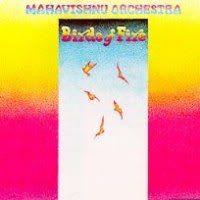
And for those of you who recall them fondly, the tracks on their live album – recorded in New York’s Central Park – you may not be aware were also recorded in the studio for what was to be their third studio album (which was not released and was presumed lost). But the tapes were located in late 1998 and released as the Lost Trident sessions the next year, with Jan’s own song Sister Andrea – named after… his sister, Andrea.
You can listen to them at these links: their show-stopping song One Word plus my favorite, The Noonward Race – but if you’d like to hear a more contemplative piece, A Lotus on Irish Streams combines chamber music and jazz with beauty.
Q – After attending Berklee, you spent time performing with Sarah Vaughn – how did you come to be a member of the Mahavishnu Orchestra?
A – The early 1970’s was a great time for musicians! I had moved to New York by then, and musicians were able to meet, make friends, experiment and become better. We were not type-cast by the music business back then.My name got around amongst musicians in New York, and John McLaughlin already had Billy Cobham on board as his drummer. Jerry Goodman had played violin on (John’s album) My Goals Beyond, so he was already known to John. All we needed was a bass player – so when I met Stanley Clarke at a club, I asked if he was interested. But at the time he said he wanted to concentrate on acoustic bass. “Sorry, thanks anyway,” I said. Later, of course, he became an outstanding electric bassist for Chick Corea.
Several years ago, there was a book written about the Mahvishnu Orchestra – in it, the author noted seeing the Orchestra on the then-popular ABC television show “In Concert” – and asking the same question that I did, “What in the world is this?!?” In it, he quotes bands with whom they toured (such as Aerosmith’s Steven Tyler) who expressed similar thoughts.
Q – What did you think of the book about the Mahavishnu Orchestra that Walter Kolosky wrote – did it accurately tell the band’s story?
A – Yes, it was wonderful. It was a chance to look back (through someone else’s eyes) and refresh my memory. Very well done.
After the end of the Orchestra in late 1973, Jan Hammer recorded an album with his Orchestra bandmate Jerry Goodman called Like Children – and then was a featured sideman for another Orchestra bandmate (Billy Cobham) on the album Spectrum – yet another landmark jazz-rock album. In addition to guest appearances on many other performers’ albums (such as Mick Jagger as well as Carlos Santana) Jan began a solo career that continues to this day, and his debut solo album The First Seven Days – had an interesting twist a few years later.
For the rest of the 1970’s, he recorded with various line-ups of the Jan Hammer Band – and one partnership he made was with the Rock & Roll Hall of fame guitarist Jeff Beck – which has lasted on-and-off to this day (as in this fairly recent photo at a Les Paul tribute show).
Q – You began doing solo work, performing with many different musicians. One I’d like to ask about is the bassist Jack Bruce – I know you first recorded with him on a Charlie Mariano album, then you toured with him in 1983. What was that like?
A – Jack Bruce is an amazing musician and singer. People who only think of him as a bass player are missing out. During some of our performances I found myself listening to his voice, during the middle of a song – a great experience.Q – Over the years, the musician you have worked with the most is guitarist Jeff Beck. How did the two of you meet, and why has it lasted so long?
A – Jeff Beck and I first met in Zurich, Switzerland in 1973, and we discussed how much we both value improvisation. In early 1975 Jeff came to visit me at my farm (north of New York City) and played me the final mixes for his Blow By Blow album. Then we agreed to work together on Wired – his next album. We inspire each other; the level of improvisation is very high and we really enjoy working with each other.Q – It must be good to know that his set lists to this day often feature your own composition “Blue Wind”.
A – Yes, very much so.
And you can listen to Blue Wind at this link – from the album “Wired” with Jan Hammer not only on keyboards, but drums as well. But the type of music Jan Hammer exemplified had lost favor with the record industry, which had changed by the advent of the 1980’s.
Q – When did you begin to tour less and write for TV and film more?
A – Gradually – by the end of the 1970’s – the goal of becoming a better musician became irrelevant due to the nature of the music business. It was disheartening not to have improvisation valued by the music industry. The business had “gotten so small” that I was ready to throw in the towel.Q – How did the transition begin?
A – I got a lucky break: my first album, “The First Seven Days,” got noticed by the people in film and TV, for the cover art as well as the music. And I began to receive offers.Q – Are there any film scores you have done that you are most proud of?
A – My film score output is not as much as on TV, but the 1985 film Secret Admirer may be the best-known.
And then – even if you are unfamiliar with any of the works mentioned so far – came the break of his career came when the producer for an upcoming TV show inquired about his becoming the show’s musical director:
Q – How did you come to work on the music for Miami Vice?
A – I was approached by its producer Michael Mann – he wanted “off-beat” music; the type not performed on TV before. I played him some cassettes of mine – including what came to be the “Miami Vice Theme”. I was very lucky.
The Miami Vice theme song reached #1 on the Billboard charts – the last instrumental to have done so to this very day – and the soundtrack album release reached #1 on Billboard’s album charts, with quadruple-platinum status. In addition, the Miami Vice Theme won for Jan Hammer two 1985 Grammy Awards for Best Pop Instrumental Performance as well as Best Instrumental Composition. A different composition of his, entitled Escape won another Grammy that same year for Jeff Beck – for Best Rock Instrumental Performance – when he recorded it with none other than Jam Hammer on keyboards.
Since then, Jan Hammer has concentrated mostly on work for film, TV, commercials and even video games. In addition, he was commissioned to compose the music for TV Nova – the first commercial network in Eastern Europe, in his native Czech Republic. And in 2006, he made an appearance at BB King’s in New York to receive a Lifetime Achievement Award from the Moog synthesizer company (along with Keith Emerson of Emerson, Lake & Palmer fame).
Q – What are you working on now?
A – I am preparing a collection of previously unreleased works, which I hope will be issued before the end of this year.Q – Do you have any plans to tour in the future?
A – No, there are no plans to tour. Jeff did call, asking me about joining him. But at this stage of my life, I have no desire to be “on the bus.”Q – Thanks so much for your time, this has been a thrill.
A – You’re welcome.
I’d like to thank not only Jan for his time (and he couldn’t have been more pleasant to talk to) but also his manager Elliott Sears, who took a good deal of time in setting up this interview and answering questions.
This all stemmed from that first essay, where a campaign to have Willis Conover posthumously awarded the Presidential Medal of Freedom – being led by the former aide to President Nixon Leonard Garment – has (so far) been unsuccessful. But whatever we as American taxpayers paid Willis Conover – fifteen years to the day after his death – it wasn’t enough.
I’ll end with the one song of Jan Hammer in which you can hear every element of his musical influences present: pop, electronica, jazz-rock, his classical training … and a sense of humor. Here is “Country and Eastern Music” from his 1974 album with Jerry Goodman. And when we first listened to this album (in my brother’s bedroom, as I recall) – my friends and I loved the surprise intro, and hearing how accomplished Jan was on drums, as well as keyboards.

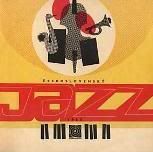
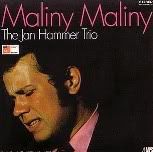
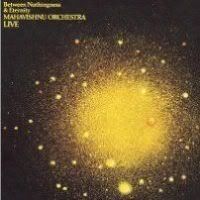
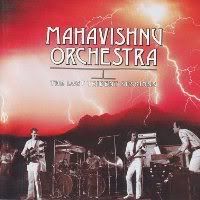

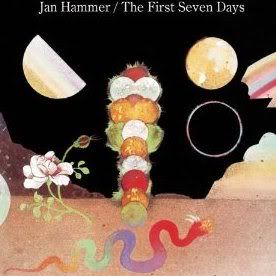


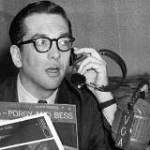
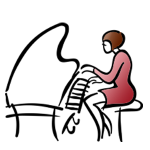

I’ve been a Jan hammer fan for a long long time . Jan has been a great influence in my music, jans tracks made Miami vice seem like a movie when ever we checked it out. Jan you are the greatest and your partner jeff beck he is something else too. A band I was in saw him at the Indiana state fair grounds way back when he led the band beck , bogart and apa cie . I’m a fan forever you guys Paul
Jan Hammer fan here. Especially love the song he did with the late Tony Williams. “Going Far”.